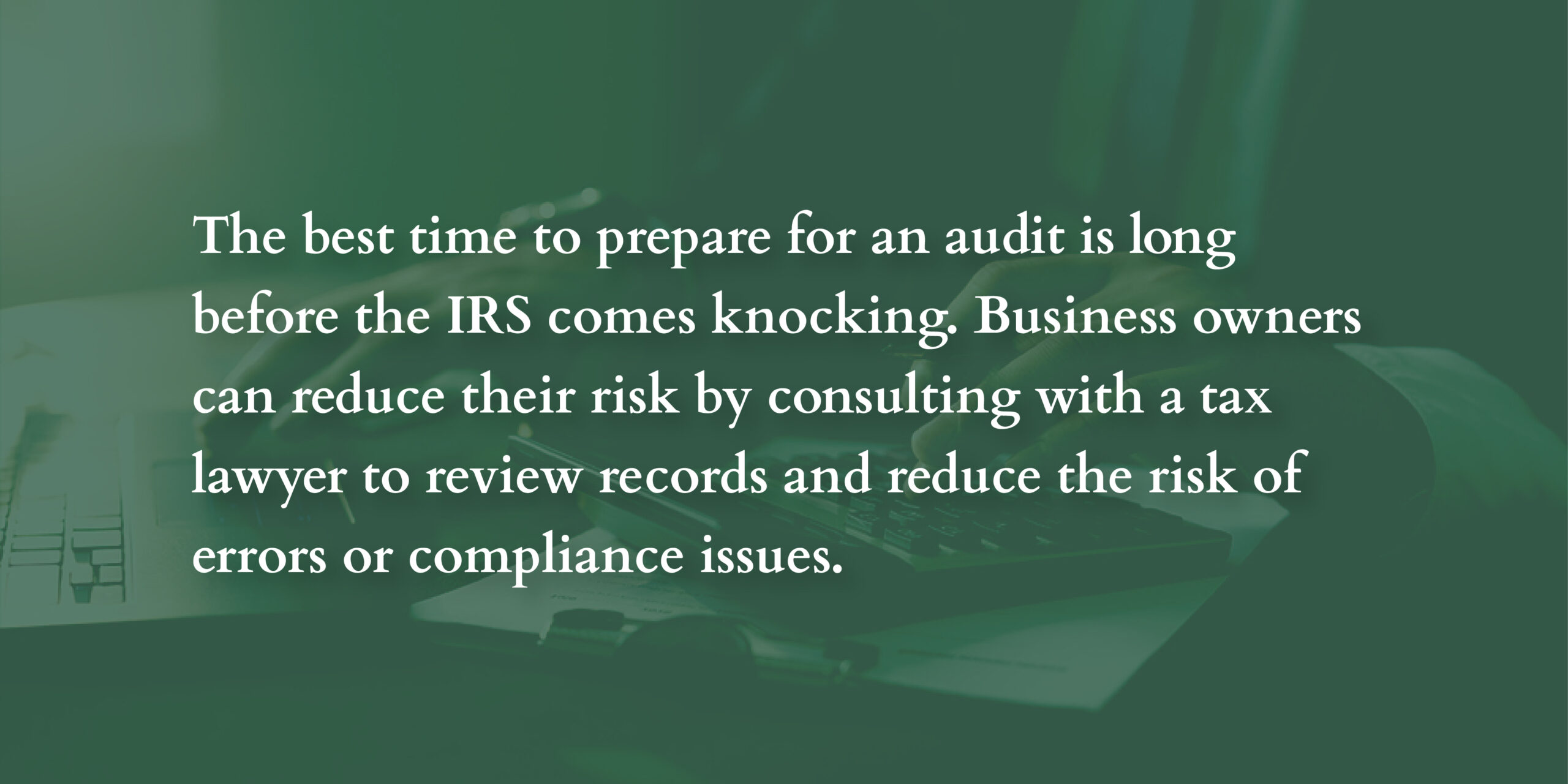How Should Business Owners Navigate IRS Audits?

For business owners in Naperville, the words “IRS audit” can cause immediate stress. No one wants to receive a letter from the Internal Revenue Service questioning their tax filings.
Yet audits are not uncommon, especially for high-net-worth individuals or those who own and operate complex businesses. The good news is that an audit does not automatically mean you did something wrong, but it does mean you must respond carefully and strategically to protect both your finances and your company’s reputation.
As of August 2025, the IRS continues to devote numerous resources to auditing small and mid-sized businesses, particularly those that report significant income, deduct large expenses, or engage in cash-heavy industries. Understanding how audits work and how to prepare for them can make the difference between a manageable process and a costly disaster.
Whether you were only recently notified of an audit or you simply want to be prepared for any eventuality, our Naperville, IL business lawyer at Gierach Law Firm has over 30 years of experience, is a business owner herself, and is ready to help.
Why Businesses Get Audited
The IRS initiates audits for a variety of reasons. Sometimes, tax returns are flagged automatically by computer systems that detect unusual patterns. Other times, audits are triggered by mismatched information between your filings and reports from banks or vendors. In some cases, a business may simply be selected at random.
For business owners in DuPage County, the most common triggers include large deductions that appear out of proportion to reported income, significant cash transactions, inconsistent year-to-year reporting, or related-party transactions that raise suspicion of underreporting. Knowing these triggers can help you avoid mistakes when preparing returns.
What Happens During an Audit
An audit begins with a letter from the IRS, never a phone call. The letter will specify the tax years under review and the information requested. There are three main types of audits:
- Correspondence audits: Conducted entirely by mail, often focusing on specific issues.
- Office audits: Require the business owner to bring records to a local IRS office.
- Field audits: The most serious, where IRS agents visit your place of business to review records on site.
Each type demands detailed documentation, and the process can take weeks or months to resolve.
The Role of Documentation in an IRS Business Audit
For business owners, meticulous recordkeeping is the first line of defense. The IRS requires that deductions and credits be backed by receipts, invoices, contracts, and bank records. Businesses that operate informally or fail to separate personal and business finances are more likely to face penalties.
Maintaining well-organized books is especially important for high-net-worth families who own multiple businesses or investment entities. Complex structures make it easier for the IRS to allege inconsistencies.

Common Mistakes That Make Audits Worse
When faced with an audit, some business owners panic and make choices that worsen the situation. It is natural to feel defensive, but how you respond matters just as much as what the IRS is asking.
The most damaging mistake is ignoring the audit letter or waiting too long to respond. Deadlines in IRS correspondence are firm, and missing them can lead to penalties or the assumption that you have something to hide. Even a short delay can cause the IRS to expand its review into additional tax years, creating more headaches.
Another common pitfall is providing incomplete or inconsistent documentation. For example, a Naperville restaurant owner under audit for cash reporting might submit receipts for some weeks but not others, or fail to match invoices with corresponding deposits. These gaps raise red flags and give the IRS grounds to dig deeper.
Many well-intentioned business owners also make the mistake of volunteering too much information. Wanting to appear cooperative, they hand over records that were not requested, such as personal bank statements or older tax returns. Unfortunately, once the IRS has that information, it can be used to raise new questions.
Finally, some entrepreneurs decide to handle audits alone, without legal or accounting support. While this may seem like a cost-saving move, it often backfires. The tax code is complex, and IRS agents are trained to ask leading questions that can box an unprepared business owner into damaging admissions.
Planning Ahead to Minimize a Business’s Audit Risk
The best time to prepare for an audit is long before the IRS comes knocking. Naperville business owners can reduce their risk by ensuring accurate tax reporting, avoiding aggressive deductions, and maintaining clear separation between business and personal expenses.
Working with an attorney who understands both estate planning and business law can be especially helpful. High-net-worth individuals often need integrated strategies that account for personal wealth, family trusts, and closely held companies. By anticipating IRS scrutiny, you can build a structure that withstands review.
When Do You Do When an Audit of Your Business Reveals Problems?
Sometimes, audits uncover genuine errors or questionable practices. This does not necessarily mean criminal charges, but it can result in back taxes, interest, and penalties. In serious cases, the IRS may refer the matter for further investigation.
Here, an experienced attorney’s guidance is critical. We can negotiate settlements, work to reduce penalties, and in some cases challenge the IRS’s conclusions. With strong advocacy, many business owners are able to resolve disputes without long-term harm.
At Gierach Law Firm, we draw not only on distinguished legal knowledge but also on experience as a business owner. We understand how disruptive an audit can be and how important it is to protect both your company and your personal wealth.
We can communicate with the IRS on your behalf, ensuring that only the necessary information is provided. This reduces the risk of getting the scope of the audit expanded. In many cases, having a skilled advocate changes the tone of the process, making it more efficient and less adversarial.
Contact a Naperville, IL Business Law Attorney
If your business has received notice of an IRS audit, do not face it alone. A knowledgeable Naperville business law attorney with over 30 years of experience can guide you through the process, protect your interests, and help you emerge stronger. Call Gierach Law Firm at 630-756-1160 today to discuss your situation and learn how skilled representation can make the difference.
Practice Areas
Archive
+2026
+2018
+2016
Please note: These blogs have been created over a period of time and laws and information can change. For the most current information on a topic you are interested in please seek proper legal counsel.














